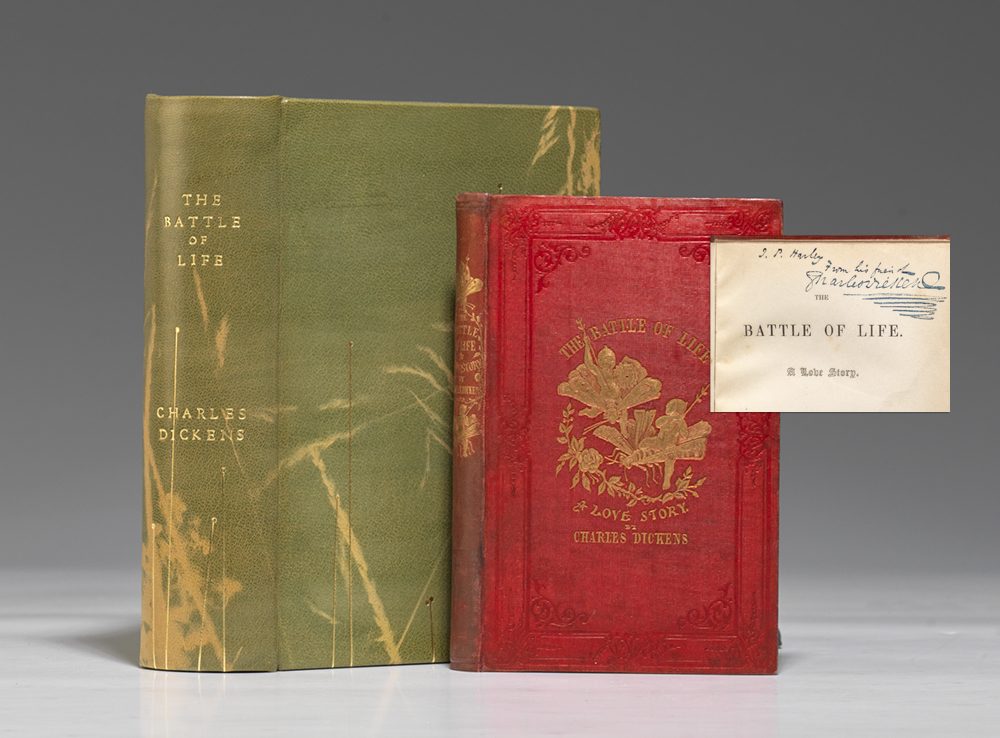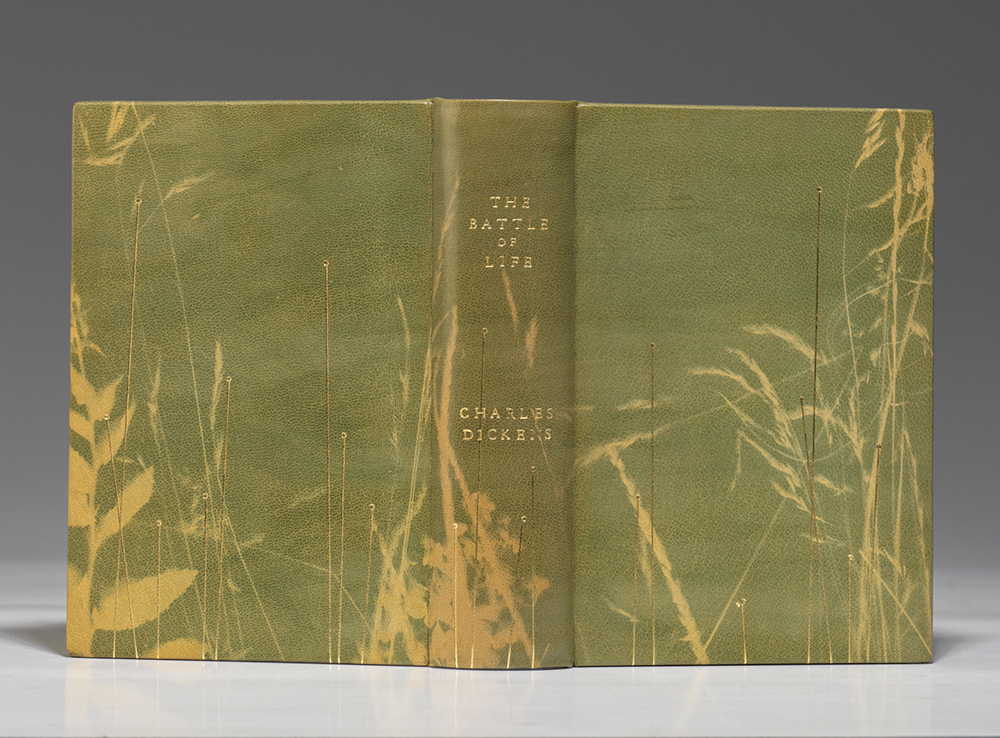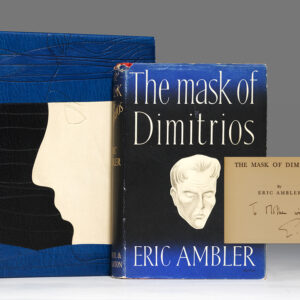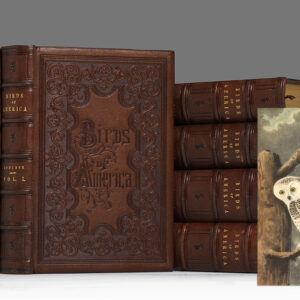Description
WARMLY INSCRIBED BY CHARLES DICKENS TO HIS FRIEND JOHN PRITT HARLEY, WHO ORIGINATED MULTIPLE ROLES FROM DICKENS PLAYS ONSTAGE IN ADDITION TO PLAYING PICKWICK
DICKENS, Charles. The Battle of Life. A Love Story. London: Bradbury & Evans, 1846. 12mo, original gilt-stamped pictorial red cloth, all edges gilt. Housed in a custom chemise.
First edition of the fourth of Dickens’ five Christmas books, a very rare presentation copy inscribed on the half title, “J.P. Harley from his friend Charles Dickens.” A professional actor, Harley was the dedicatee of one of Dickens’ plays, and originated roles in a number of them, in addition to performing the role of Pickwick onstage.
The inscription is undated, but almost certainly was inscribed in 1846. This was most likely done during Dickens’s lightning return from Lausanne to London in December 1846 to personally supervise the dramatic adaptation of The Battle of Life staged at the Lyceum as a special Christmas bill.
John Pritt Harley (1786-1858), satirically known as “Fat Jack” (he was extremely thin), was a fine actor and countertenor specializing in comic songs. In the 1820s Dickens’s sister Fanny had been asked to perform at a benefit for him at the Royal Academy of Music. By the 1830s Harley was stage manager of the St James’s Theatre, built by John Braham, where Dickens’s first farce The Strange Gentleman was staged. Harley was the dedicatee of Dickens’s second theatrical effort, The Village Coquettes, and, on its premiere at the St James’s on 6 December 1836, played the leading role which Dickens had written specially for him. Harley later took the leading part in the third Dickens drama, Is She His Wife? at the St James’s, and on the same bill played Mr. Pickwick, reciting a song written by Dickens on the theme of a whitebait dinner. He was with Dickens’s friend W.C. Macready at Covent Garden in 1838, and afterwards with Madame Vestris and Charles Mathews (another Dickens favorite) when they opened the same establishment two years later. Harley habitually took his summer holidays in Broadstairs, where he stayed a street away from Dickens.
Harley died penniless in 1858: his estate was administered by one of his creditors. In 1982 these items were acquired by a private collector from the descendants of the Miss Rigden whose book label is on each front pastedown; Miss Rigden presumably acquired the books after Harley’s death. One other Dickens presentation to Harley is recorded: the Starling-Suzannet-Self copy of The Village Coquettes, which sold in April 2008 —though a second dedication copy of the same title, from the Jerome Kern collection sold in 1929, is now in the Gimbel collection at Yale. With 13 engravings, including the frontispiece and title page, by Stanfield, Leech, Doyle, and Maclise. Fourth state, as usual, with the subtitle “A Love Story” on a scroll carried by a cupid, on a vignette title page without the publisher’s imprint statement. Eckel, 121. Smith II:8.
Interior fine, cloth with minor expert restoration to spine ends and joints, gilt bright. A beautiful copy.




